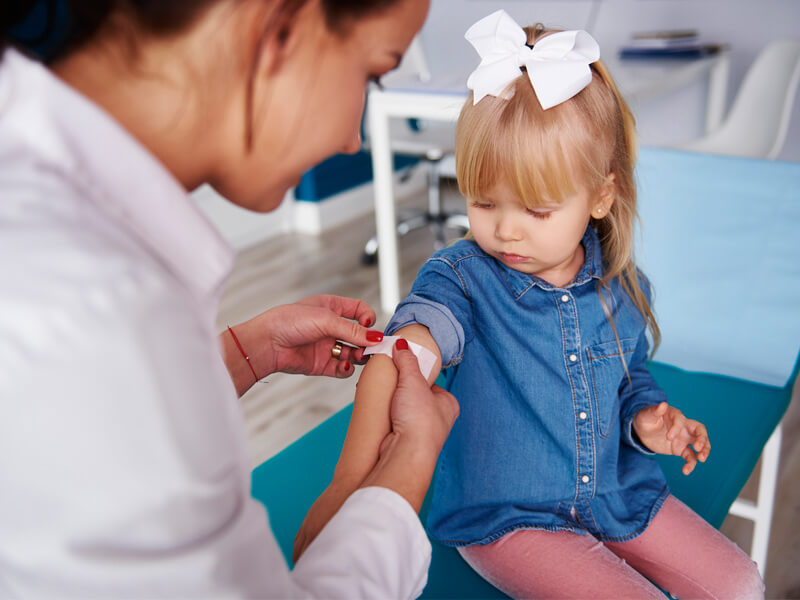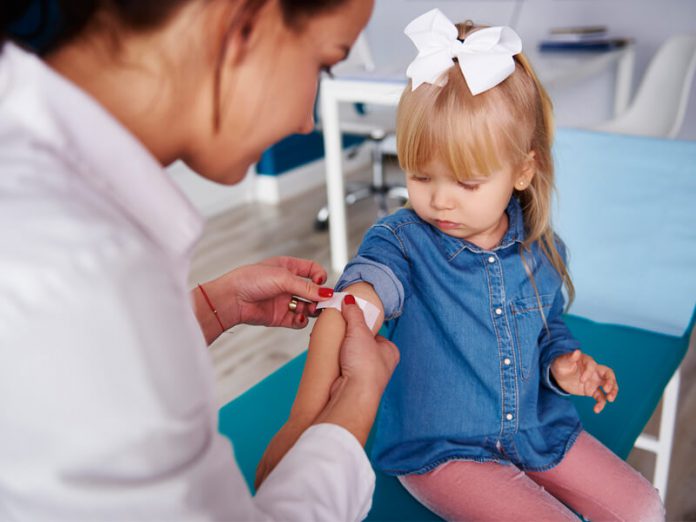
With the number of measles cases australia wide surging towards a five-year high, we’re being urged to check on our immunisation history.?
Nearly 100 a lot of people been told they have measles so far around australia this year, just around the corner the total diagnosed for the whole of 2019 .
Measles can be a highly infectious viral illness spread through coughing and sneezing. It can lead to serious health conditions, including potentially fatal infections in the lungs and brain.
Just 5 years ago, Australia was declared measles-free, using the high rate of vaccinations keeping genital herpes largely kept from increasing.
Australia impacted by global outbreaks
Immunisation specialist on the National Centre for Immunisation Research and Surveillance Dr Lucy Deng says Aussies travelling overseas are bringing the situation back home, often unknowingly.
“Measles is incredibly contagious – discover fully vaccinated and you are in the same vicinity as somebody who has measles, you’ve a 90 % chance of catching it,” she says.
Globally, Africa has witnessed by far the most dramatic recent improvement in measles cases, up 700 percent – with Ukraine, Madagascar and India among other countries also reporting “many deaths”.
The global outbreaks have prompted society Health Organisation to list out vaccine hesitancy as a top ten threat to global health in 2019.
Measles symptoms to check out for
Measles starts fever, runny nose, a cough, red eyes and a sore throat, followed by a red blotchy rash that spreads throughout the body.
Symptoms usually start about Ten to twelve days after catching genital herpes and continue around 14 days.
You can be contagious for days before you get the tell-tale rash, meaning you can spread herpes without even knowing it is, Dr Deng advises.
“The virus may survive on surfaces for approximately two hours, meaning that as well as buying it from the air, you can actually catch it by touching infected surfaces,” she says.
Born between 1966 and 1994?
You need two doses in the measles vaccine to be resistant to the virus, so for adults born between 1966 and 1994 which will mean a catch-up dose.
“While we’ve had the vaccine nationwide since 1968, a two-dose program was just introduced in 1992,” Dr Deng explains.
“That means an awfully large cohort of Australians, the majority of whom love to travel, think they’re safe because and may told by their parents they are vaccinated, but that won’t be the case.”
The measles, mumps, rubella (MMR) vaccine is included in the National Immunisation Program and there’s no harm of having it if you find yourself unsure whether one has had two doses.
Time to be sure of your immunisation history
Dr Deng says the immunisation warning is timely in your lead-up to World Immunisation Week, which happens to be promoting vaccines to defend people of all ages against disease.
The theme with this year’s campaign is Protected Together: Vaccines Work! And also the immunisation specialist says: “It’s an ideal chance to remind everyone why these diseases we haven’t seen for a bit are recurring because we’ve seen a stop by vaccination rates across the world.
“Despite all the gains, we’re still seeing outbreaks of measles, diphtheria as well as other vaccine-preventable diseases all over the world, with many children affected.
“World Immunisation Week a fabulous initiative to obtain the dialogue going and provide an open discussion about how precisely precisely vaccines work and then answer any inquiries people probably have.”
The Australian Government’s National Immunisation Program Schedule has each of the info you may need on which immunisations you’ll need, and when.
If unsure, check in using your GP or medical physician.
The World Health Organisation’s World Immunisation Week?starts on April 24.
Written by Liz McGrath.


































